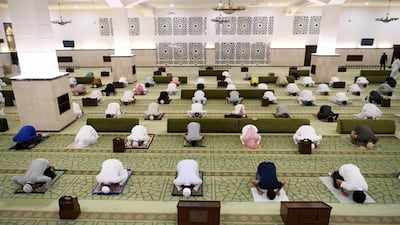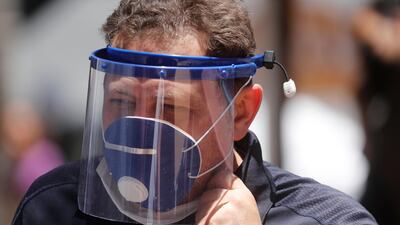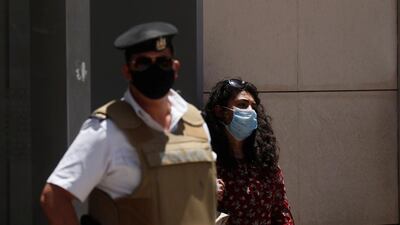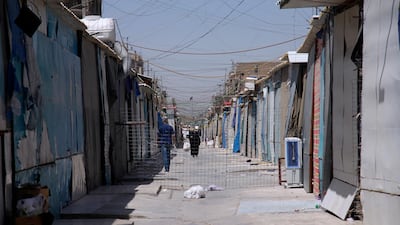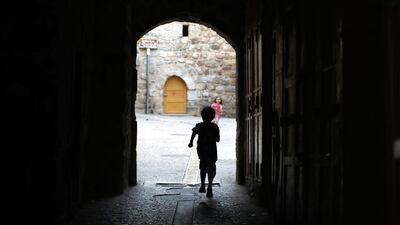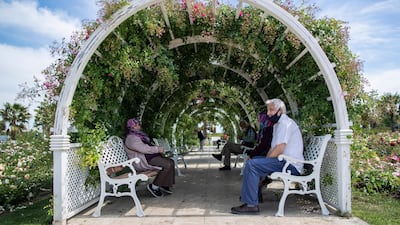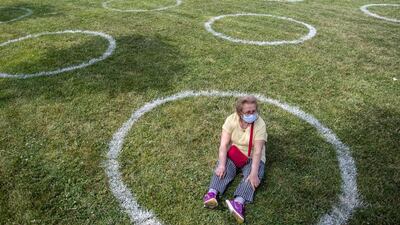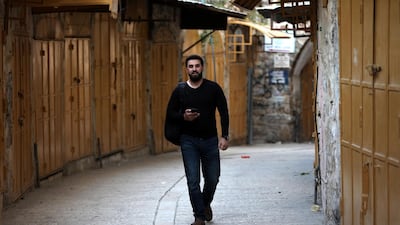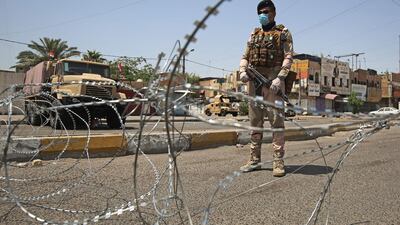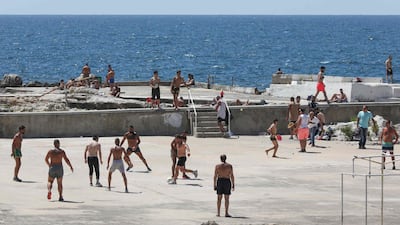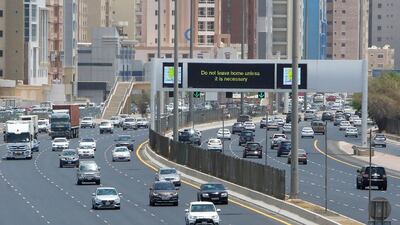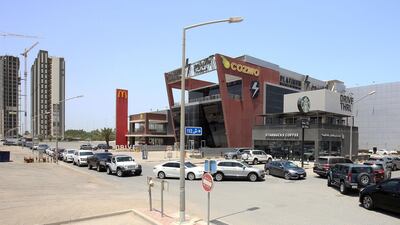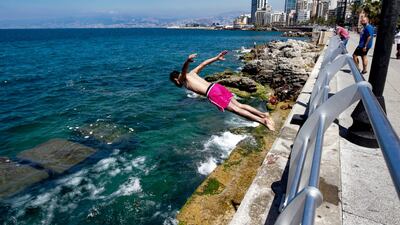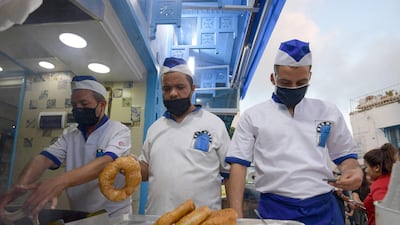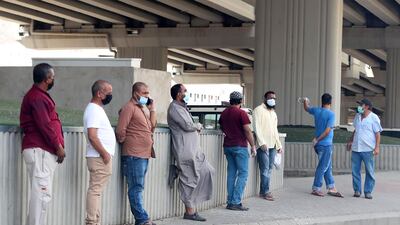A unified approach has boosted the UAE's fight against Covid-19 as the country now faces up to the stern challenges of reinvigorating the economy and opening up schools and air travel safely, a senior envoy said.
Yousef Al Otaiba, the UAE Ambassador to the United States, said many obstacles still lie ahead as the country navigates "uncharted territory" in the first episode of a new podcast series.
Mr Al Otaiba hosted a 30 minute discussion in the US with Cleveland Clinic chief executive Dr Tom Mihaljevic and Children’s National Hospital counterpart Dr Kurt Newman.
They assessed the journey ahead for countries across the globe seeking to secure the best exit strategy from a pandemic which has gripped health services and economies for several months.
“If is fair to say we are all in completely uncharted territory,” said Mr Al Otaiba.
“We do not know if there is a standard approach to this virus that should be adopted or if countries should choose what best suits their society.
“The challenge is learning how to navigate this and when to turn the economy back on.
“How do we get people safely back to work and get planes flying again in a pattern where livelihoods are not at risk?
“In the UAE we are a small country and we cannot afford to take seven different approaches within each emirate, so we have taken a more centralised approach.”
The health executives shared their experiences of how each hospital has dealt with coronavirus on the frontline and what will change in the future.
Doctors at the Cleveland Clinic Abu Dhabi passed on lessons learned in day-to-day operations to aid their US counterparts.
“Pandemics and disease do not recognise boundaries, we are all in this together so it is a unifying force for the greater good,” said Dr Mihaljevic.
In describing the current challenge, Dr Mihaljevic said health care professionals were essentially using tools from the 14th century to combat a disease of the 21st century.
He said more could be done to utilise artificial intelligence, data exchange and advanced pharmaceuticals to defeat Covid-19.
Health of the economy is crucial
The medics said the biggest challenge in public debate now is the balance between finance, economics and human life.
“We have a responsibility that a deep economic decline and a fragment of care for many patients in our communities will lead to a potentially substantive death toll,” said Dr Mihaljevic, a cardiac surgeon responsible for overseeing CCAD’s overall strategy.
“Poverty leads to worse public health outcomes so we must not lose sight of the simple fact that a vast majority of the health burden requires constant attentions and cannot be interrupted.
Since the global pandemic emerged, hospitals in the US and the UK have reported a significant decline in new diagnosed cancer cases.
“The cancer had not gone away, but people cannot access care because they are unemployed or are scared to go to the hospital,” said Dr Mihalievic.
“This cannot be ignored. This pandemic had infected many people, it has also effected many people.”
The Children’s National Hospital in Washington, DC maintains a long-standing relationship with the UAE.
It is home to the Sheikh Zayed Institute for Pediatric Surgical Innovation, a research institute aimed at making surgery more precise, less invasive, and pain free.
With still much to learn from the virus, the hospital’s chief executive Dr Newman warned against rushing children back to school too soon.
“We learned early about a new condition that overwhelms the immune systems in children,” he said.
“This first appeared in the UK and we have a long way to go before we understand this disease and its wider implications on health.”
The most recent data suggests children represent less than 2 per cent of confirmed coronavirus infections in China, the US, Spain, Italy and Korea.
Call for caution over return to school
It is unclear if they are less likely to contract the virus or cases are undiagnosed because symptoms are mild or non-existent.
A study from the US Centres for Disease Control and Prevention found 18 per cent of those studied tested positive, but did not report symptoms.
Doctors have seen a rare, post-viral response in children who are genetically susceptible, days or weeks after getting infected.
Symptoms are similar to toxic-shock syndrome in older children, with fever, skin rashes, low blood pressure, abdominal pain and changes in skin colour.
It has also been compared to Kawasaki disease seen in children under five, with boys more susceptible.
As more is learned about the disease, better guidance can be delivered on when children should return to school.
“There is still a lot of uncertainty about children going back to school in September,” said Dr Newman.
“It is too early to know if children are not severely impacted by this virus.
“It is so important to have children in school but we need to know they will be safe and until there is a vaccine, we do not know if that will be possible.
“It will be a very difficult trade-off.”


